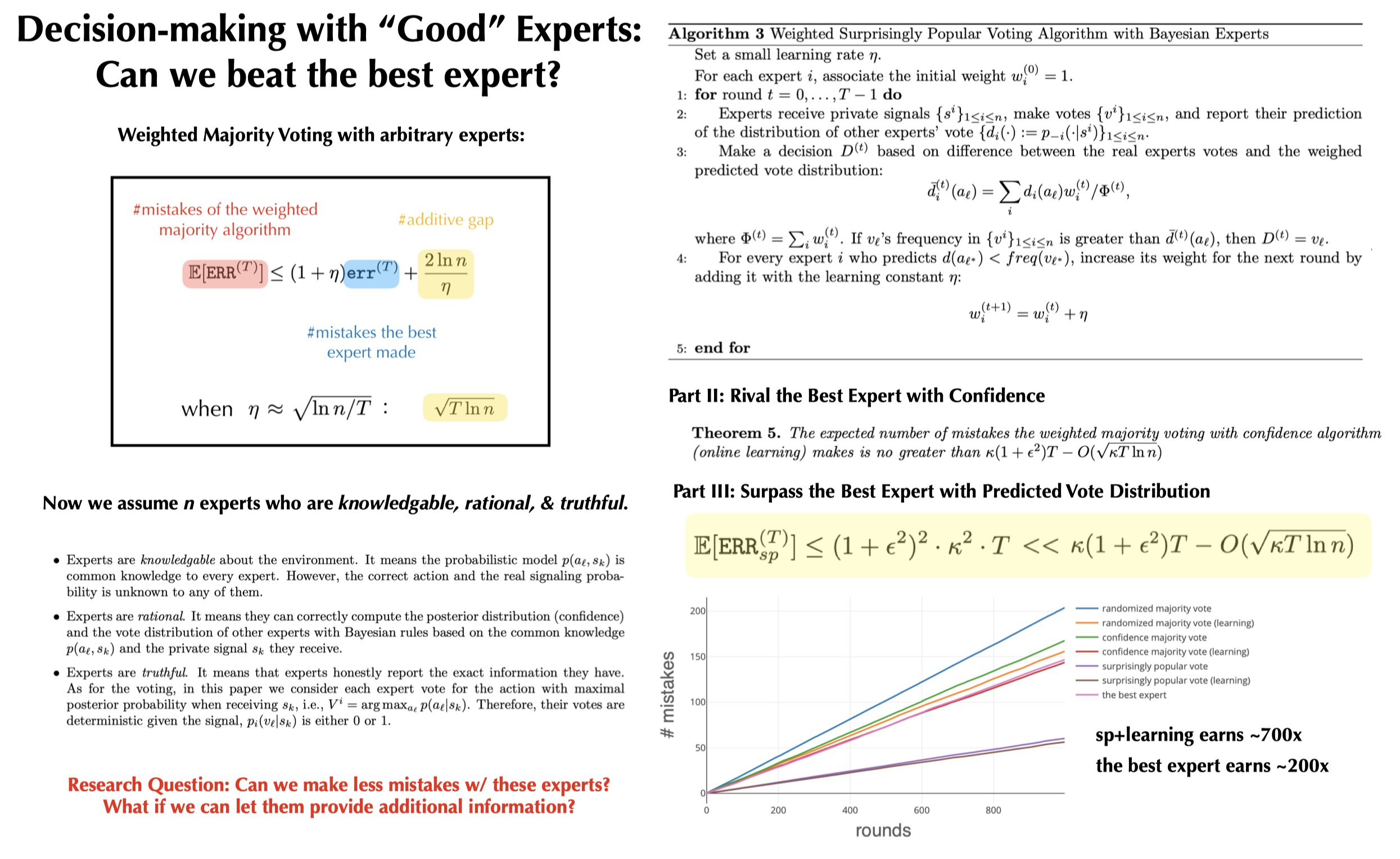This research project studies a novel online decision-making problem of choosing the correct action each round given access to experts that are knowledgeable, rational, and truthful, rather than arbitrary. We ask, in this setting, whether we can surpass the best expert using voting-based algorithms when the experts provide additional information along with their votes. We first show that we can reduce the number of mistakes using the confidence reported by each expert, and rival the performance of the best expert using a weight multiplication algorithm. However, the confidence reported by each expert is insufficient for recovering the correct action, so in order to surpass the best expert, we need more informative cues from these experts to recover the correct action. The experts cannot individually make use of these cues. We show that we can surpass the best expert by having experts provide their predictions of the vote distribution of other experts. We show that with high probability, the correct answer is the one that is “surprisingly popular” relative to their predictions. We then propose an online learning algorithm incorporating this “surprisingly popular” voting strategy, and show that it significantly outperforms the best expert in simulations with real stock data.

Authors
Runzhe Yang, Jimmy Wu